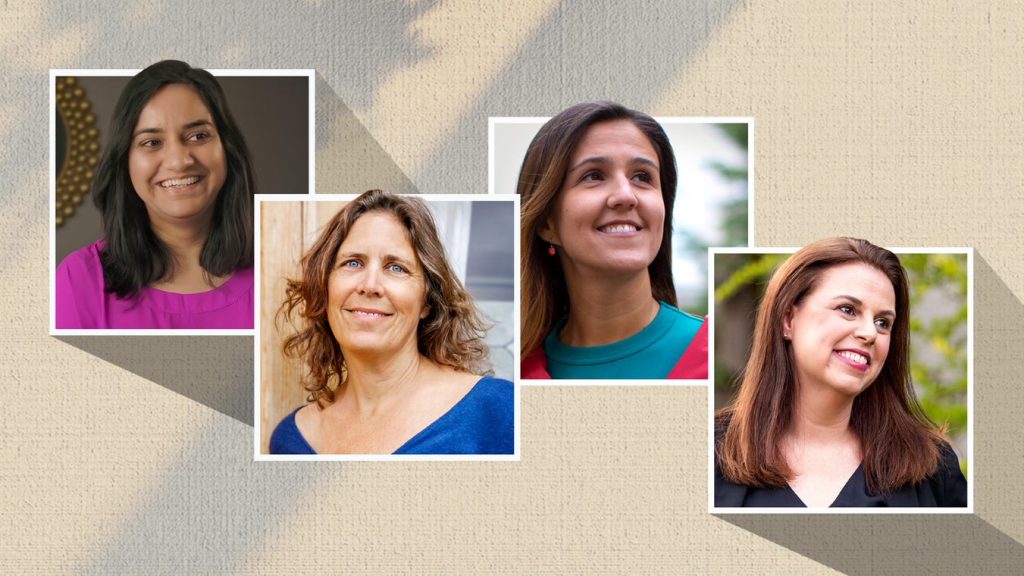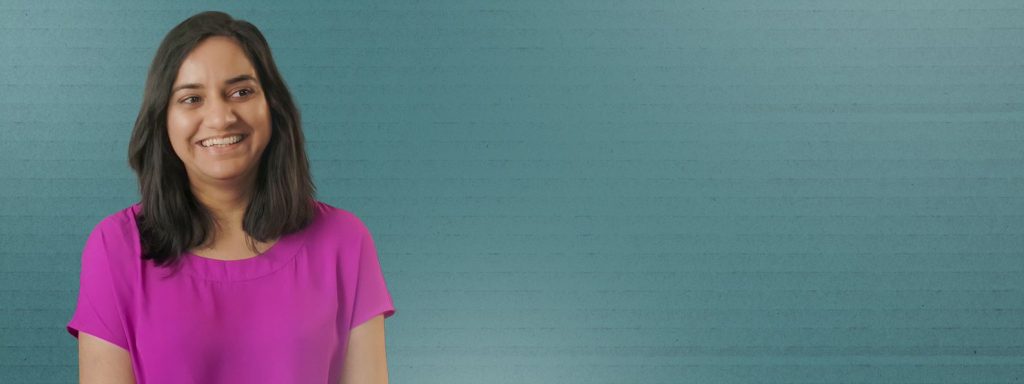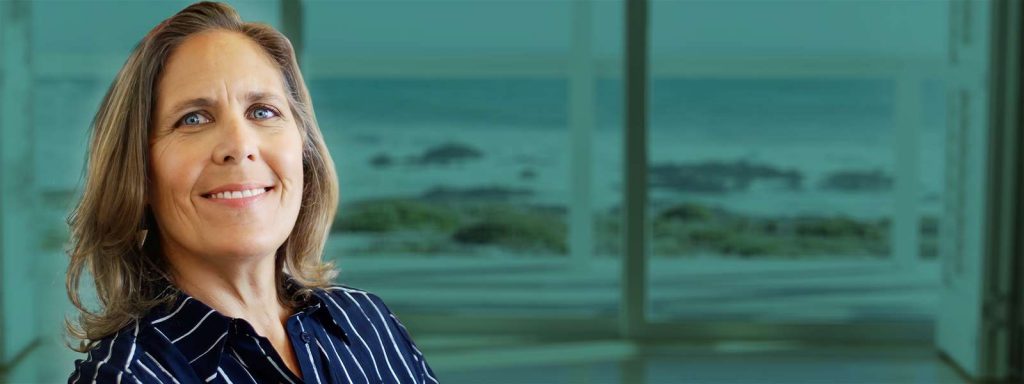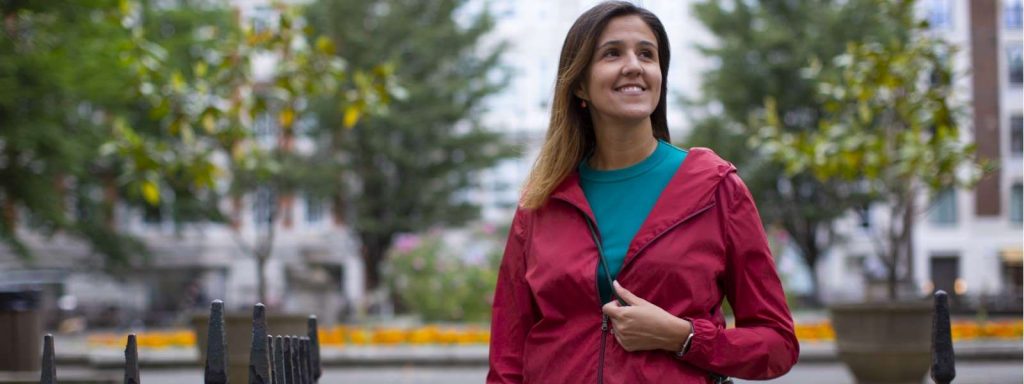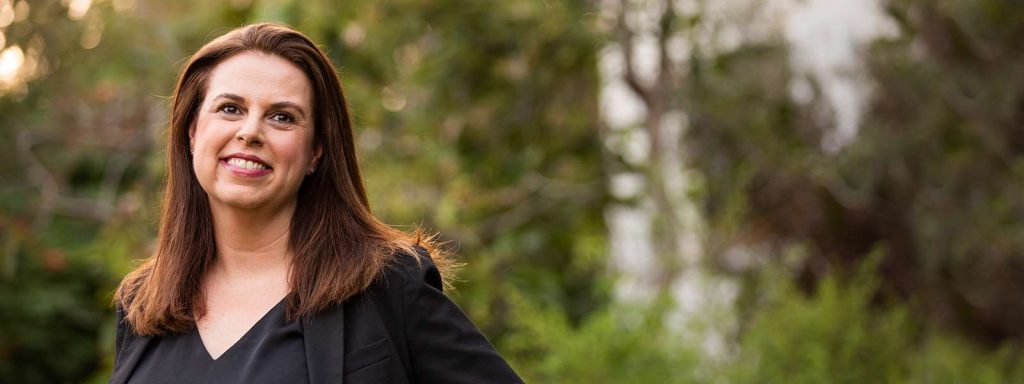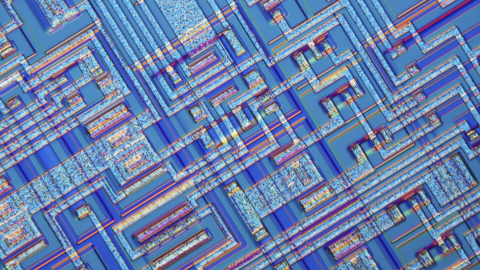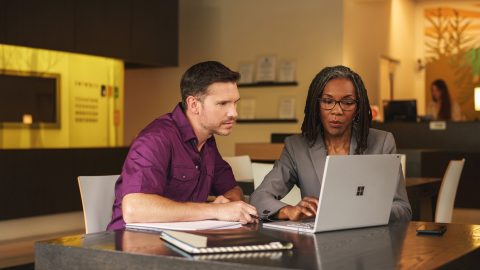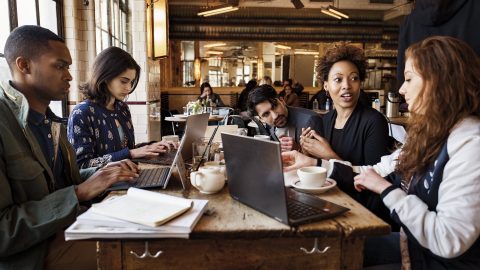Meet 4 women who are using AI to tackle tough problems globally
To honor International Women’s Day (and month!), we’re highlighting four women who are featured in our Humans and AI series. We launched this series last summer to share stories of the inspiring people behind technological innovations that are changing the world for the better. Today, we want to call particular attention to a few women who are helping to solve complex social, health and environmental challenges.
Meet Kriti Sharma, United Kingdom
As the founder of AI for Good UK, Kriti Sharma is leading the way in creating positive change to solve serious global problems like domestic violence. One in three women will experience violence in their lifetime. When Kriti heard this staggering statistic, she vowed to create technology to help. By partnering with experts in the domestic violence field, she created rAInbow, an AI companion app for women so they can learn how to define abuse, understand if they are experiencing it and find ways to find help when they are ready.
Growing up in India, Kriti Sharma saw her mother blaze a trail for women by becoming a journalist in a male-dominated culture and profession, and now she too is blazing a trail by fostering the next generation of AI innovators.
Meet Denise Hardesty, Australia
Dr. Denise Hardesty is a principal research scientist at CSIRO, Australia’s national science agency, envisioning new solutions to end plastic waste around the world. For example,s in Tasmania, camera traps under bridges take photos and videos then use object recognition to analyze the data, quantifying how much trash is in the waterways and how it’s moving. And sensors in storm drains can alert the agency when they are full of trash so drains can be emptied before they overflow.
Hardesty has always had a special connection to nature. By studying science, she discovered that AI can be a powerful tool to stop plastics from getting into the ocean.
Meet Alice Piterova, United Kingdom
Alice Piterova and her cohort at AI for Good UK created an AI model that simulates the spread of COVID-19 in refugee camps. The simulation enables NGOs to isolate those at high risk, take pre-emptive steps to reduce the virus spread and prepare health care workers, all while protecting the privacy of refugees.
Piterova moved to London from Russian to start a new life, and understood firsthand how hard it is to leave your home and come to a place where you don’t understand the ways and customs.
Meet Hadas Bitran, Israel
When COVID-19 began ravaging the world, Hadas Bitran saw a great need to help frontline healthcare workers by developing a COVID-19 self-assessment bot that enables people to check their symptoms before going to a crowded hospital or emergency room. Then, when she and her team learned plasma from COVID-19 survivors could help treat sick patients, they joined the Plasma Alliance to help them use the health bot for their global effort to recruit plasma donors.
Bitran says she had been into computer science and technology from the age of 12, but also wanted to be a doctor. When she saw how Microsoft was using AI in healthcare, she found the perfect opportunity to marry her passions.
Thank you to all of you for what you are doing to innovate for society!

